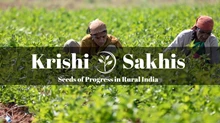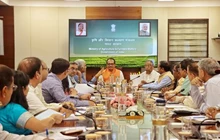
On May 10, 2024, the World Health Organization (WHO) prequalified a new vaccine for dengue, a significant move in the fight against the mosquito-borne disease. The vaccine, known as TAK-003, is the second dengue vaccine to achieve this status, following the CYD-TDV vaccine developed by Sanofi Pasteur. Developed by Japanese pharmaceutical company Takeda, TAK-003 is a live-attenuated vaccine that contains weakened versions of all four serotypes of the dengue virus.
Dengue is a viral infection transmitted to humans through the bite of infected mosquitoes. It is estimated that 100–400 million infections occur each year, putting about half of the world's population at risk. The year 2023 saw the highest recorded number of dengue cases, with the WHO Region of the Americas reporting 4.5 million cases and 2,300 deaths.
The prequalification of TAK-003 marks a crucial step towards broader global access to dengue vaccines. This status allows the vaccine to be procured by United Nations agencies such as UNICEF and the Pan American Health Organization (PAHO), facilitating its distribution in countries with high dengue burden and transmission rates.
Dr. Rogerio Gaspar, WHO Director for Regulation and Prequalification, highlighted the importance of this development, stating, "The prequalification of TAK-003 is an important step in the expansion of global access to dengue vaccines. With only two dengue vaccines to date prequalified, we look forward to more vaccine developers coming forward for assessment, so that we can ensure vaccines reach all communities who need it."
In a statement, the UN health agency recommends using TAK-003 for children aged 6 to 16 years in regions with a high incidence of dengue. The vaccination schedule consists of two doses administered three months apart. This targeted approach aims to protect the most vulnerable age group in areas heavily affected by dengue.
Dengue fever presents a significant global health threat. Severe dengue, a more dangerous form of the disease, can lead to potentially fatal complications. There are an estimated 3.8 billion people living in dengue fever hotspots, mostly in Asia, Africa, and the Americas. Recent increase in dengue fever cases is linked to factors such as climate change and growing urbanization, creating favorable conditions for virus-carrying mosquitoes.
The introduction of TAK-003 offers renewed hope in the global effort to control dengue. As countries gear up to integrate this new vaccine into their public health programs, the potential to reduce the incidence and severity of dengue cases is significant.











